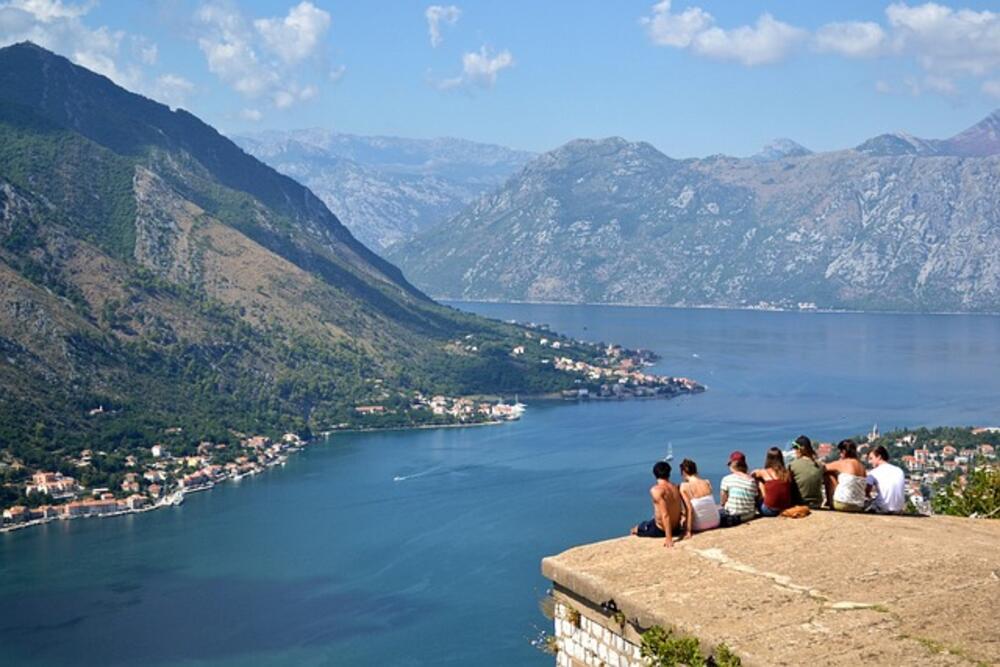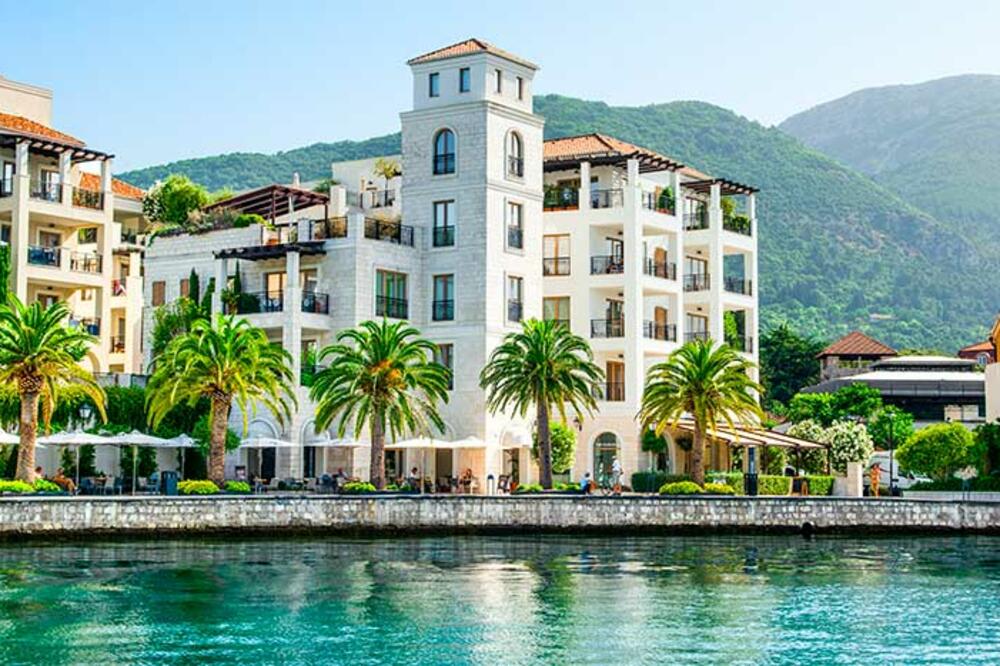How is the process of purchasing property in Montenegro different for foreigners?
Foreigners face several differences when purchasing property in Montenegro compared to residents. These differences exist due to legal regulations and procedures in place to safeguard the interests of both foreign investors and the country. Foreigners need to be aware of these variations to navigate the process smoothly.
One key distinction for foreigners is the requirement to obtain approval from the Ministry of Sustainable Development and Tourism before purchasing investment land property in Montenegro. This approval is necessary to verify the intended use of the property and ensure that it aligns with the country's development plans and regulations. The Ministry reviews and approves applications based on the criteria set forth in the relevant legislation.
Additionally, foreigners must appoint a licensed real estate agent or lawyer to represent them throughout the property purchase process. This ensures that all legal requirements are met and that the buyer's interests are protected. The appointed representative will assist in conducting due diligence on the property, ensuring its legal status, and verifying the seller's ownership rights.

Foreigners are also required to open a bank account in Montenegro to facilitate the transaction. This account serves as a means for transferring funds related to the property purchase, such as the initial deposit and final payment. The bank may request documentation to comply with anti-money laundering regulations and ensure the legality of the funds.
Foreigners should also engage the services of a professional translator during the purchasing process. This ensures clear communication and a comprehensive understanding of all legal documents and agreements involved. It is essential to comprehend the rights and obligations stated in these documents to make informed decisions.
Current Real Estate Trends
Montenegro's real estate market is showing robust growth, with increasing foreign investment and coastal properties in high demand.
Montenegro has emerged as a hotspot for luxury developments, attracting global attention with its stunning Adriatic coastline.
The rise in property values is driven by a strong interest in tourism-centric regions, leading to a proliferation of high-end residential and commercial projects.
Investor-friendly policies have made Montenegro an appealing market, spurring developments that cater to both local needs and international tastes, with sustainability gaining traction.
Prime Locations for Buyers

Budva, a jewel on the Adriatic coast, stands out as a top choice for property acquisition, boasting a vibrant cultural scene, picturesque beaches, and a flourishing real estate market. Its medieval town charm, coupled with contemporary developments, creates an attractive balance for discerning investors.
The Bay of Kotor, a UNESCO World Heritage site, offers tranquility amidst dramatic scenery, making it a sought-after locale for serene living.
Tivat, home to the prestigious Porto Montenegro marina, attracts a niche market of luxury seekers, offering high-end amenities with a touch of glamour.
Kotor's captivating old town presents opportunities to own a piece of history, with carefully restored stone houses that honor Montenegro's rich heritage.
For those eager to meld business with leisure, Bar's developing infrastructure projects an upward trajectory, presenting lucrative investments in a city where growth and modernization are palpable.
Inland, Podgorica serves as the nation's capital and economic hub, its real estate sector drawing interest for both residential and business ventures, providing a metropolitan alternative to coastal living.
What are the legal requirements for buying property in Montenegro?
When it comes to buying property in Montenegro, there are several legal requirements that potential buyers need to be aware of. These requirements are put in place to regulate the property market and protect both buyers and sellers. Here are the key legal requirements for buying property in Montenegro:
- Residency: Non-residents are allowed to buy property in Montenegro without any restrictions. However, if you are a non-resident, you will need to obtain a tax identification number (TIN) from the tax authorities before you can complete the purchase.
- Land Registry: All property transactions in Montenegro must be registered with the local Land Registry. This is an official record of property ownership and serves as proof of ownership. It is important to ensure that the property you are buying is properly registered in the Land Registry to avoid any future legal disputes.
- Title Deed: The seller must have a valid title deed for the property being sold. The title deed is a legal document that proves ownership and outlines the boundaries and details of the property. Before completing the purchase, it is essential to verify the authenticity and accuracy of the title deed through a legal professional.
- Legal Representation: It is highly recommended to engage a qualified lawyer who specializes in property law to represent you during the buying process. They can guide you through the legal requirements, review contracts, and ensure that all necessary checks and searches are conducted.
- Due Diligence: Before purchasing a property, it is important to conduct thorough due diligence. This includes checking the property for any encumbrances, such as mortgages, liens, or unpaid bills. It is also recommended to carry out a survey and obtain planning permissions, especially for land purchases.
- Contracts: Once you have found a property and negotiated the terms with the seller, a purchase agreement needs to be drawn up. This agreement should clearly state the terms and conditions of the sale, including the purchase price, payment terms, and any other special clauses. It is crucial to have all contracts reviewed by a legal professional to ensure they are fair, transparent, and legally binding.
- Taxes and Fees: Buyers should be aware of the taxes and fees associated with purchasing property in Montenegro. These may include property transfer tax, notary fees, registration fees, and legal fees. It is important to factor in these costs when budgeting for your property purchase.
Ownership Eligibility for Foreigners
Foreign nationals are allowed to acquire property in Montenegro, navigating a process that is typically straightforward. This openness complements Montenegro's burgeoning real estate sector, enhancing its appeal on an international scale.
However, foreign buyers must acquaint themselves with Montenegro's legal framework, which distinguishes between EU and non-EU residents. This distinct categorization bears implications for the requisite administrative procedures and the extent of ownership rights accorded.
Certain restrictions apply to the purchase of agricultural land by foreigners, necessitating a thorough understanding of the types of properties available for international investors.
Legal Restrictions and Permits
Foreign investors must navigate Montenegro's legislative constraints, particularly when purchasing coastal real estate or protected areas.
In principle, non-residents are permitted to buy property within Montenegro, subject to certain prerequisites and regulations. One key criterion is the reciprocal real estate acquisition agreement between Montenegro and the investor's home country. Moreover, specific types of land, especially those with agricultural classification or situated in areas of national interest, may be subject to more stringent acquisition restrictions. Investors should engage local legal experts to ensure compliance with all necessary legalities and permits before proceeding with any property transaction.

Additionally, development projects or property alterations may require planning permits. Acquiring these permits involves assessment and approval from local authorities, ensuring adherence to urban planning policies and environmental regulations. They are essential for construction to proceed legally and are equally important for resale value and future property development prospects.
For high-value transactions, enhanced due diligence measures may be mandated to prevent money laundering and ensure the source of funds meets legal and ethical standards. This may entail thorough background checks on potential buyers and close examination of financial trials. Agents and legal representatives must ensure all transactions uphold the integrity of Montenegro's real estate market, and adhere strictly to international property transaction protocols.
Are there any specific property taxes or fees that need to be paid when buying property in Montenegro?
When purchasing property in Montenegro, it is important to be aware of the specific property taxes and fees that may apply. Here are some key considerations:Property Transfer Tax: In Montenegro, a one-time property transfer tax is levied on the value of the property being conveyed. The rate of this tax varies depending on factors such as the location and value of the property.
- Value Added Tax (VAT): VAT is applicable on the sale of new properties in Montenegro. The standard VAT rate is currently set at 21%, but there may be reduced rates for certain types of properties or in specific regions.
- Annual Property Tax: The annual property tax, also known as the real estate tax, is levied on the ownership of properties in Montenegro. The tax amount is calculated based on factors such as the size, location, and value of the property.
- Notary Fees: Notary fees are incurred when purchasing property in Montenegro. These fees cover the costs associated with drafting and registering the necessary legal documents for the property transfer.
- Administrative Fees: There may be administrative fees charged by the relevant authorities for processing and registering the property transaction.
- Legal and Agency Fees: Engaging the services of a lawyer or a real estate agency is common when buying property in Montenegro. These professionals may charge fees for their assistance in navigating the legal and administrative aspects of the purchase.
- Other Potential Costs: It is important to consider additional costs such as property valuation fees, survey fees, and any mortgage-related expenses if applicable.
It is recommended to consult with a local real estate expert or lawyer to fully understand the specific property taxes and fees associated with buying property in Montenegro. They can provide accurate and up-to-date information based on your individual circumstances and the type of property you are purchasing.
Required Documentation
Acquiring property in Montenegro necessitates a meticulous compilation of documents verifying identity, legal capacity, and eligibility.
Since 2009, Montenegro has adopted a cadaster-based real estate registration system, requiring precise documentation, including cadastral excerpts and proof of ownership or legal interest.
Individuals must submit a valid passport or national identification document alongside the signed purchase agreement, which forms the foundation of the transfer of ownership.
Moreover, the purchase process demands the production of a no-encumbrance certificate, establishing that the property is free of liens, and an official property valuation is mandatory for accurate tax assessment.
Pertinent tax documentation must also be presented, evidencing payment of the required property transfer tax, typically levied at a rate of 3% for real estate transactions.
Navigating the Buying Process
When buying property in Montenegro, it's important to navigate the process carefully. Engage a experienced real estate agent or legal expert specializing in Montenegrin property law for compliance with regulations. Structure the purchase with precision, including a detailed purchase agreement and thorough due diligence checks for clear title and encumbrances.
Engaging Real Estate Agents
Selecting a real estate agent in Montenegro is a pivotal step in ensuring a smooth property transaction.
Research Credentials: Ascertain the agent's qualifications and track record in the Montenegrin market.
Clear Communication: Opt for agents who are fluent in your preferred language and Montenegrin.
Legal Acumen: Real estate agents should have a strong grasp of local property laws and regulations.
References: Request testimonials from previous clients to gauge the agent’s reliability and success rate.
Fee Structure: Understand all costs involved, including agent commissions, to prevent any unanticipated expenses. Usually, their fees range from 3-5%.
An agent's expertise is particularly valuable for navigating the nuances of Montenegrin real estate law. The right agent not only facilitates the search but also represents your interests throughout the purchasing process.
Property Inspection and Valuation
Property inspections are imperative before purchase. An expert evaluation ensures the structural integrity and condition of the property. It identifies any potential issues, which could significantly impact the investment's value. Invariably, this step should not be overlooked to guarantee a secure transaction.
A reliable appraisal determines market value.
Engage a certified appraiser to establish an unbiased property valuation. This valuation is essential - not only for negotiating terms of sale but also for securing financing, if required. Moreover, a comprehensive appraisal report can act as a powerful tool during negotiations.
Documentation should attest to inspection and valuation integrity.
The need for meticulous documentation is paramount. It captures the findings from the inspection and valuation, providing a concrete record. Such documentation is especially crucial if discrepancies, claims, or legal matters arise following the transaction.
Ensure compliance with Montenegrin real estate regulations.
The Montenegrin legal framework mandates certain protocols for property inspection and valuation to ensure fairness and transparency within the market. As of the latest legal provisions in 2023, these guidelines stipulate the methods and qualifications for professionals conducting these services. Compliance with these standards is non-negotiable to facilitate a legitimate property transfer.
The Legal Side of Purchase
Upon agreeing to purchase terms, it's crucial to initiate due diligence. Such prudence safeguards against potential legal ramifications, ensuring the transaction aligns with Montenegro's statutory requirements.

In this phase, buyers must engage with notarized contracts and required government filings (e.g., tax declarations) to solidify their legal stance. Official registry with local authorities certifies ownership and safeguards the buyer's rights to the property.
Finalizing “due diligence” and the “notarization” steps prevent future legal encumbrances. They ensure a buyer's acquisition is anchored in legal compliance.
Contractual Agreements
When entering into a property transaction in Montenegro, a binding contract is the pivotal instrument for enshrining terms and conditions agreed upon by both parties involved. A solid contractual foundation guarantees clarity and protection for buyer and seller alike, delineating responsibilities and the framework for the transaction's conclusion.
Each contract must comply with Montenegrin property law to be considered valid. It should be drafted with precision to avoid potential disputes or litigation.
Parties should involve legal counsel experienced in real estate to construct the contract, ensuring terms align with local statutes and the interests of both signatories are adequately represented.
Contracts should stipulate the conditions of sale, payment terms, any obligations regarding property conditions, dispute resolution mechanisms, and clauses concerning possible breaches or terminations.
It is pivotal to engage in meticulous contract review to prevent overlooked clauses or ambiguous language that could cause complications during or after the transaction.
Finally, the potential impact of international laws must be considered, especially for foreign investors. Proper legal guidance ensures contracts are not only compliant with Montenegrin law but also with relevant international regulations.
Tax Implications and Fees
Property ownership in Montenegro incurs annual property taxes that may vary depending on the municipality and the property's value. The rates can fluctuate, influencing overall investment calculations.
Transfer taxes also apply, generally amounting to 3% of the property's market value at the time of purchase.
In addition to standard transactional taxes, buyers must account for notary fees and land registration charges, which are obligatory for the execution of property transfer documents and the formalization of ownership.
International investors would be well-advised to understand double taxation agreements between Montenegro and their home country to optimize fiscal obligations. It is essential to seek thorough financial advice on these matters to ensure compliance and fiscal efficiency.
Bonus video:





